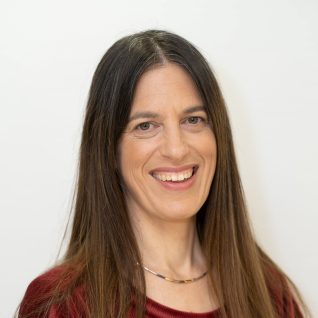Associate Professor. Einat Heyd-Metzuyanim is a faculty member and researcher in the domain of mathematics education and the learning sciences, at The Technion – Israel’s Institute of Technology, in the Faculty of Education in Technology and Science. She earned her B.A in psychology and computer sciences and an M.A (Summa cum laude) in Educational Counselling. In 2012 she obtained her Ph.D. (Summa cum laude) in Mathematics Education from Haifa University, continuing to a postdoc fellowship at LRDC, University of Pittsburgh.
Heyd-Metzuyanim’s research interests focus on mathematical identity, discourse and teaching for explorative participation in mathematics. In addition, she is interested in natural language processing technologies for enhancing the research on identity development in mathematics. Since 2016, she has been leading the TEAMs project – Teaching Exploratively for All Mathematics Students (in Hebrew: MACHSHAVA), a research-practice project, funded by the Israeli Trump foundation. This project is currently in its second phase, named “TEAMS PLCs for the 21st century”. In addition, since 2018, she has been PI of an the Dialogos “center of excellence”, together with a multi-disciplinary team from four universities. This project aims to foster dialogical teaching in mathematics, science and the humanities, in secondary schools. Finally, since 2020, she has been PI on an ISF (Israel Science Foundation) funded project named LATID (Learning difficulties, Technology, Identity and Discourse) which targets low achieving students and aims to promote productive mathematical identities through technology-assisted pedagogy.
Between 2017-2021, Heyd-Metzuyanim served as the Secretary and later the Vice President of the International Group of Psychology in Mathematics Education (PME). In addition, she served as a member of the Jerusalem Conference of Research in Mathematics Education (JRCME) committee and co-chaired the JCRME7 in 2019.
Heyd-Metzuyanim has published more than 20 peer-reviewed articles in multiple international journals, including the Journal of the Learning Sciences, Educational Studies in Mathematics, the Journal of Mathematics Teacher Education, Instructional Science and ZDM – Mathematics Education. In 2014, one of these publications won the Research in Mathematics Education Early Career Publication Award from the Research in Mathematics Education SIG of the American Educational Research Association (AERA). She has co-edited a special-issue for Educational Studies in Mathematics on Rituals and Explorations in Mathematical Teaching and Learning and a special issue on Identity in Mathematical Teaching and Learning for ZDM – Mathematics Education. She is also serving as a member of the editorial board of the International Journal of Science and Mathematics Education, and on the advisory board of For the Learning of Mathematics.



